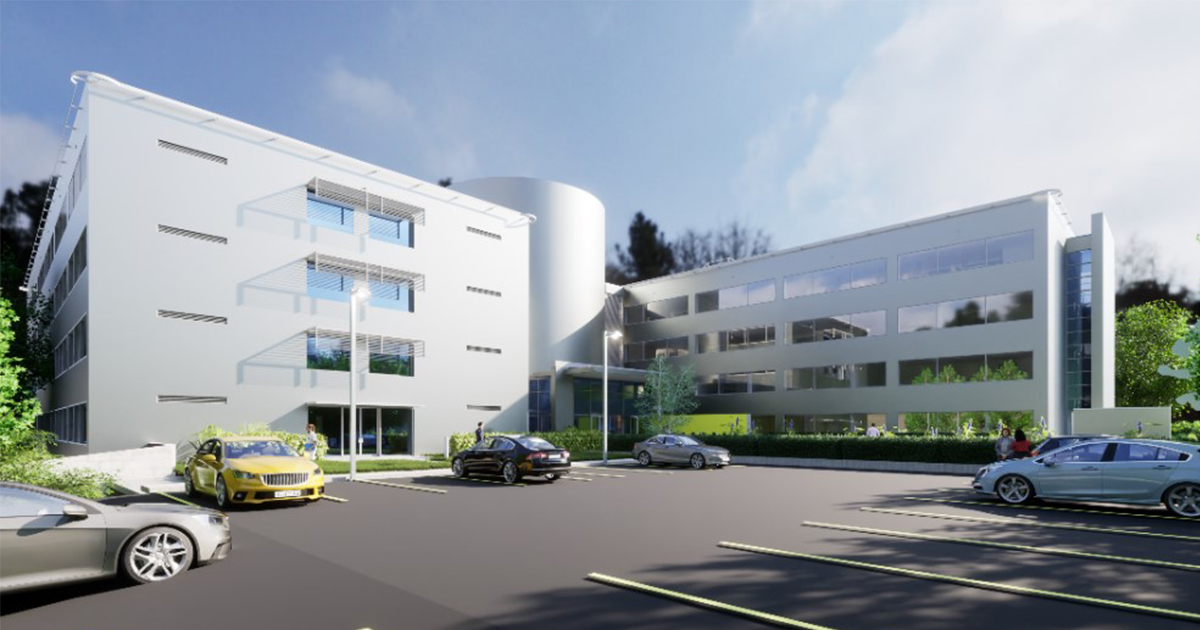The Woolcock Institute of Medical Research

Heading into a new era
As we head to our new home at Macquarie University, the Woolcock’s researchers are excited about the opportunities the move brings for sleep and respiratory research..
The world of respiratory and sleep research has changed enormously in recent years. The COVID era shone a spotlight on respiratory disease like never before, with the world demanding answers from medical researchers at an unprecedented pace. At the same time, we became more aware of the importance of sleep. And the power of data to “The profile and volume of sleep research has grown exponentially. Today, it’s as close to sexy as research gets,” says Woolcock Executive Director Professor Carol Armour. “Why? Well, it’s the great unknown and it’s universal – we all sleep. We all have disturbed sleep at times.”
“Research into respiratory disease has had a bit of a renaissance too because COVID made it a day-to-day concern for everyone. There’s now a broader base of interest in how we breathe, in treatments for asthma, COPD and lung cancer.”
Asking Important Questions
Sexy or not, researchers at the Woolcock have been asking and answering questions about respiratory disease and sleep issues for more than 40 years. Today those questions and answers are increasingly driven by health data.
A case in point is a recent study by the Woolcock’s Centre for Lung Cancer Research which established a link between antibiotic use and the outcomes for people undergoing chemotherapy for lung cancer.
“Our researchers used clinical data to find the link, but why is that happening? The only way to find that out is to go back to the lab and look at the interaction between those drugs and say yes, there's something in the cells that's activated in this set of circumstances and actually, if we just do X we can make the outcome so much better. But we wouldn't be looking for that interaction in the cells unless we asked the clinical question in the first place. In that case, the research question came from clinical data so discovery can come from bottom up or top down, but it's important that the linkage is there.”
Does that mean that medical researchers today are able to come up with more important, more pointed questions?
“No,” she says. “We continue to ask important questions, some of them we can't answer because there aren't enough dollars. It's just reality.”
A Can-Do Attitude
Professor Armour believes the Woolcock’s partnership with Macquarie University will help with the daily challenge to win research funding.
“There’s real strategic alignment there and a can-do attitude which is incredibly important on a day-to-day basis. The leaders at Macquarie really want to work with us and by collaborating with their various groups, we can make our research dollars go further. We’ll have larger groups applying for larger grants and therefore be able to answer bigger questions.”
Professor Armour is particularly excited about potential collaborations with the Australian Institute of Health Innovation in the area of implementation science and the appropriateness of care. There is also an opportunity to be involved with the broad range of disciplines in Macquarie’s Faculty of Medicine, and the Dementia Research Centre led by Professor Lars Ittner (“as a basic science group, they’re world leading and they represent a fantastic opportunity for us in brain ageing”).
“The move to Macquarie opens up the universe for sleep. Sleep in Australia has developed as a clinical discipline but the way it is going means it does rely on neurology, on ageing research, on engineering.”
Want to stay up to date with our research on sleep and respiratory conditions?
Sign up to our monthly newsletter
Clinical Opportunities and Facilities
She’s also excited about the opportunities that come from Macquarie University Hospital and its facilities. As a clinical facility, it offers us the opportunity when we have patients that we can't take care of, for whatever reason, to provide in-patient services while we continue to collaborate with them and we can help, if they need, with people who just need community care.
“Imaging facilities, which we haven’t had at Glebe, will be close by. And pathology services. Allied health. They have a large Physiotherapy team, a large Psychology department. Then there’s other disciplines – Cardiology is a very big and productive discipline at Macquarie, and the opportunity to work with them in our areas of expertise is quite exciting.”
“I think, with all of those opportunities, the Woolcock is about to embark on a new era of growth.”










